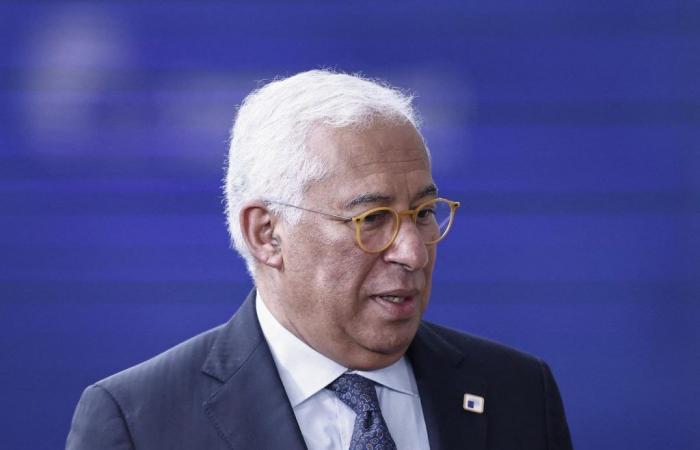“From experience, I know that the work of the Council is difficult, so let them work. » António Costa was very evasive the day after an informal dinner on June 17 in Brussels where European leaders discussed – without concluding – the future “top jobs” of the Union. During a debate on the future of the Union in Lisbon, the former head of the Portuguese government carefully avoided questions from journalists. He nevertheless remains almost certain to take over from Charles Michel at the head of the institution which brings together the 27 heads of state and government.
Even before the summit planned in Brussels for June 27 and 28, a consensus was found among the six leaders of European countries, including the French Emmanuel Macron and the German Olaf Scholz on the appointment of “top jobs”: the president of the European Commission Ursula von der Leyen will serve a second term, while former Portuguese head of government Antonio Costa would become the new president of the European Council and Estonian head of government Kaja Kallas would be appointed head of EU diplomacy,
António Costa’s candidacy ultimately did not suffer from his legal troubles. The former Portuguese head of government is in fact struggling with the justice system of his country: Operation “Influencer”, a corruption affair which weighs on his entourage and which pushed him to resign on November 7. Five of his former collaborators are indicted over the dubious allocation of lithium exploration and hydrogen production concessions.
António Costa was not formally charged, but he himself requested to be heard as part of the investigation in May. However, on June 17, when the Twenty-Seven were considering his candidacy, the Portuguese media revealed the content of telephone tapping which seemed to implicate him. Scheme? Last minute attempt to derail the former prime minister’s European pretensions? These leaks which violate the secrecy of the investigation are especially damaging to the functioning of justice.
“A convinced Europeanist”
In adversity, his fiercest political adversary, the current prime minister of the right-wing government in power in Lisbon since last March, Luís Montenegro, is paradoxically his best support. «It’s not just because he’s Portuguese that we support him. He is also a convinced Europeanist, who defends the values of the Union, those of democracy. And he advocates political and economic solidarity between European countries », declared recently the head of the executive, who sees in his predecessor an asset “for Portugal and for Europe”.
António Costa, 63 years old in July, began his political career at the age of 14 by joining the socialist youth movement, before studying law. A deputy at the age of 30, he held various ministerial positions (parliamentary affairs, justice) in the government of António Guterres (1995-2002), before becoming mayor of Lisbon in 2007. Arriving in power in 2015 after fine coalition maneuvers, he was able to convince Brussels of the merits of his anti-austerity policy.
The political scientist António Costa Pinto assures us:«He is an excellent candidate for this position because he comes from a small country, he is not “tied” to the major European powers, he is well known to the institutions and he has the capacity negotiations recognized by its peers.» A point of view apparently shared by European leaders.






